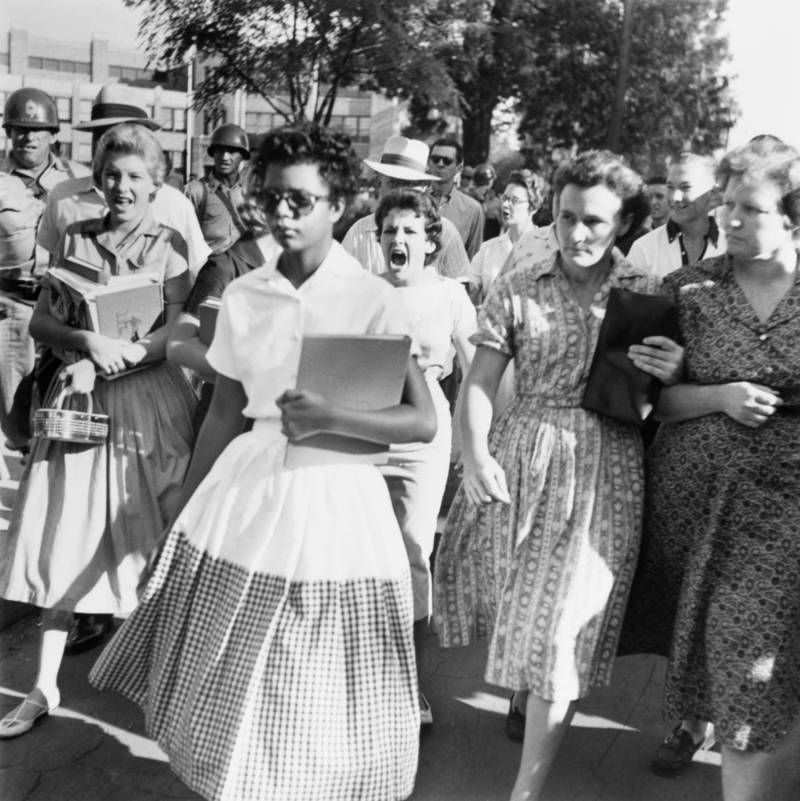The following is a video I made for my YouTube channel, Jack’s World. It’s a video version of an article I wrote a while back. I added and removed a few details to the video. If necessary, I’ll do a follow-up. Enjoy!
The following is a video I made for my YouTube channel, Jack’s World. It’s a video version of an article I wrote a while back. I added and removed a few details to the video. If necessary, I’ll do a follow-up. Enjoy!

We currently live in a golden age of villains. Between Thanos, Erik Killmonger, the Joker, and Walter White, there has been a veritable surge of complex characters who also happen to be compelling villains. While there’s still a place for the kind of pure evil that Disney villains have relied on for years, this trend in a more refined brand of villainy feels both refreshing and overdue.
I’ve written extensively on villains before. As a lifelong fan of superhero comics and movies, I’ve consumed, contemplated, and scrutinized hero/villain dynamics more than most. In doing so, I’ve noticed plenty of trends. Like most aspects of popular culture, it’s always evolving. Very few themes and details remain constant, especially when it comes to antagonists.
That said, there’s one trend in villains that has remained somewhat constant over the course of my lifetime. It’s also a trend that I see as intensifying, albeit in a subtle way. Some of it coincides with the growing complexity of villains in popular culture, but most of the trend precedes the current era of superhero-dominated media. If anything, superhero media helped accelerate it.

While most villains and heroes rarely identify with a certain political affiliation, it’s usually not hard to discern how most would vote in a contemporary election. I would even argue that it’s easier to surmise what a villain’s political leanings are compared to that of heroes. Take any villain from the past 10 years of movies, be they superhero or otherwise. Chances are a vast majority of them would identify as conservative.
Now, I understand conservatism is an exceedingly broad term. It has a dictionary definition, but as a political philosophy, there are many sub-sets, divisions, and variations. From fiscal conservatives to social conservative to neoconservatives, there are many wildly different ideologies that still identify as conservative. A few actively clash with one another.
Those complexities aside, there are some core tenants associated with conservatism and it’s those very tenants that make it such an effective basis for villains. Chief among conservative values is the idea that traditional norms, institutions, and values be maintained. Change isn’t actively dissuaded, but it is viewed with caution and suspicion. To be conservative is to affirm the status quo, to some extent.

That’s all well and good if the status quo is beneficial to everyone. It’s not so preferable for those who either fail to benefit or are actively screwed over by that same status quo. Since there has never been a society in history that has achieved perfect prosperity for everyone, regardless of their minority status, there’s bound to be people who get left behind.
In our own real-world history, we’ve seen people from those disaffected groups organize and fight the status quo to better their lives. That struggle has played out in the Civil Rights movement of the 1960s, the movement for women’s rights, and the LGBT rights movement that’s still going on today. Those who oppose these movements tend to have, broadly speaking, conservative leanings.
Look at the groups that opposed the Civil Rights movement.
Look at those who actively oppose LGBT rights, women’s rights, and immigrants.

They all espouse rhetoric that would put them at odds with Superman, Captain America, and most other superheroes who value justice, truth, and peace. For some, their talking points sound like ideas that only villains in the mold of Lex Luthor would agree with. While not all of them identify as overtly conservative, the standard principles are there.
Anything too different from the status quo must be wrong or evil.
Anybody too different from the people everyone else in a society must be bad, evil, or devious.
Any idea, trend, or movement that is disruptive or deviant in any way is something to be opposed.
It doesn’t just manifest in superhero movies or underdog stories, either. Look at a movie like “Footloose.” In this story, the people who ban dancing are uptight, dogmatic, religious zealots who likely voted for Ronald Reagan in 1984 when this movie came out. They were the antagonists of that story and the kids, while not overtly liberal, dared to defy them.

It can even manifest subtly in other media. In kids shows like “Recess,” “Hey Arnold,” and “Rocko’s Modern Life,” the most common antagonists are uptight authority figures who have no tolerance for new ideas, big changes, or anything remotely fun. It’s hard to imagine any of these characters voting for someone who builds their slogan around change, reform, and reinvention.
They like things the way they are. Most of them benefit from the current system and will naturally seek to preserve their place in that system. While they won’t always see themselves as villains, it’s difficult for them to come off as heroes. You can only be so heroic when your side is closely aligned with predatory business practices, fun-hating religious zealots, and unabashed war-mongers.
That’s not to say it’s impossible for liberals to be villains too. It does happen and it can be done very well when done right. I would argue that Erik Killmonger in “Black Panther” was more in line with an extreme liberal revolutionary who didn’t just want to pursue change. I would make a similar argument for Ra’s Al Ghul in “Batman Begins.”

These characters didn’t just seek to change society from its current unjust state. They sought to violently destroy it and rebuild it from the ground up. That kind of liberalism exists in the real world and it can make for compelling villains.
However, the number of villains who align with the politics of Killmonger are far fewer than those who would align with the politics of Lex Luthor. In general, it’s easier to resist change rather than embrace it. It’s also necessary to some extent for those to resist change to be uptight authority figures who are okay with coercing others to maintain traditions. Logistically, the villains in many conflicts must be conservative.
Now, that’s not to say that villains will always lean conservative in popular media. What it means to be conservative changes over time. If you were to listen to conservative rhetoric 50 years ago, they would sound very different. They might even sound liberal by today’s standards.
The same goes for liberalism of previous eras. It hasn’t always been closely aligned with the politics surrounding minority rights, income inequality, or political correctness. The liberals of the 1920s would likely clash with the liberals of today. That’s just part of the ever-evolving nature of politics.

For the time being, though, being a villain in popular culture usually means being conservative to a certain extent. Conservatives are more likely to be the rich, greedy business people who would gladly burn down a rain forest or exploit slave labor to raise profits. Conservatives are more likely to be the rule-loving, fun-hating, curfew-enforcing religious zealots who wouldn’t mind electing theocrats with every election.
These types of individuals are far more likely to be villains in a story. At the very least, they’ll side or tolerate the villain. It’s easy to believe that those who side with the religious right and well-connected rich people will generally oppose a selfless, likable protagonist. From a narrative perspective, these kinds of villains are better in that we tend to root for heroes who oppose authoritarian bullies like that.
Again, it’s guaranteed that political and cultural trends will likely change what it means to be conservative, liberal, and everything in between. For the time being, if you were to bet on the political leanings of an antagonist, the odds are mostly in favor of that antagonist being conservative.

Picture the perfect candidate for an election. I know the bar for politicians these days is laughably low, but try to stretch your imagination a bit. Try to envision the kind of candidate that embodies the best collection of values, abilities, and charisma for a civilized society.
Everybody looks for something different in a candidate, but a truly perfect candidate would appeal to everyone in a democratic system. This person would embody the highest values, championing human rights to the utmost and justice for everyone. Every decision they make is with the safety, sanctity, and rights of other people as their top priority. There’s no compromise. They do right by the people every time and all the time.
This person would also be the ultimate leader, capable of getting anyone to go along with them without fear or coercion. There wouldn’t need to be corruption of any kind. This person would be perfectly capable of navigating every level of government and making it work to the utmost. The people would trust in that government, believe in it, and even celebrate it.
/arc-anglerfish-arc2-prod-mco.s3.amazonaws.com/public/TKC4J674TREPLD4RAMKD46T2QI.jpg)
Keep that perfect candidate in the forefront of your mind because when it comes to discussing politics, cynicism tends to rule the day. I don’t think I need to cite too many recent events to show how imperfect democracy is these days. I don’t even need to cite famous historical events that show just how bad government can be in this convoluted world.
It’s because of that cynicism, though, that the perfect candidate you’re thinking of could never win a democratic election in the real world. Even if they existed, the inherent flaws of the electorate and those of less perfect candidates would keep them from winning. It’s one of democracy’s greatest flaws. It’s not about who the best candidate is. It’s just about who can convince enough people that they’re worth voting for.
On the subject of democracy, Winston Churchill once said the following:
“The best argument against democracy is a five-minute conversation with the average voter.”
Time, politics, and the proliferation of has only proven Mr. Churchill right. I would even amend that quote to say just 30 seconds on 4chan will make anyone lose faith in the promise of democracy. That’s not to say democracy is all bad, though. Mr. Churchill also once famously said this about the alternatives:
“Indeed it has been said that democracy is the worst form of Government except for all those other forms that have been tried from time to time.”
It’s distressing, but frustrating fact of civilization, one that fuels mass protests, fake news, and lurid scandals. Go back to any point in history and scrutinize any government, be it a king or some quasi-democracy, and chances are you’ll find serious flaws in the system. I don’t just mean long lines at the post office, either. There have been times when democracy has not furthered the protection of human rights.
It’s not necessarily a flawed principle as it is a concept with flawed ingredients. While I tend to place a great deal of faith in the goodness of human nature, I don’t deny that people can be arrogant, irrational, and downright callous. We’re prone to overreacting and not thinking things through. We’re hard-wired to go with intuition over logic.

Even when we’re proven wrong, we stubbornly cling to our assertions. The prevalence of creationism is proof enough of that. Every election cycle is prone to bold promises, bloated melodrama, and major goals that rarely ever become actual policy. Some become full-fledged revolutions with Utopian visions. The fact that none of those utopias ever manifested is proof of how unsuccessful they were.
We are not a species built for democracy on a large scale. We evolved to function in close-knit tribes, hunting and gathering for food while fighting for survival. That kind of evolution doesn’t really lend itself to a functioning democracy. It doesn’t lend itself to a total autocracy, either. Whether it’s a free republic or a fascist state, humans cannot govern other humans without their flaws plaguing them in both directions.
It’s for this reason that I often lean libertarian in political debates, but given the complexities and challenges of modern society, even that only goes so far. Like it or not, large-scale civilizations populated a species not evolved to manage it requires some measure of authority. More importantly, it requires competent, incorruptible, compassionate authority.

It needs to be able to defend a population of people within a particular border. It needs fair and just laws that can be equally enforced. It also needs the confidence and trust of the people being governed. Sometimes, it’s done out of fear. Sometimes, it’s done out of free will. Both can work, provided the system has robust capabilities that aren’t prone to human error.
Unless a government is populated by a democratic council consisting of Superman, Wonder Woman, and Dr. Doom, that kind of functional democracy is physically impossible. Even though democracy is still the best we have from an exceedingly limited list of options, that may change in a big way thanks to artificial intelligence.
I know it seems like I attribute many superhuman capabilities to this emerging field, it’s hard to overstate its potential. Unlike every other tool humanity has created, artificial intelligence promises to rewrite the rules at every level of society. That includes government and it’s here where AI’s capabilities could go beyond superhuman.

Think back to that perfect candidate I mentioned earlier and all the traits that made them perfect. By and large, an advanced artificial intelligence shares many of those traits and then some. A sufficiently powerful AI would be beyond politics, pettiness, or demagoguery. In principle, it could embody everything people would want in a strong leader and a capable government.
For one, it would be smarter than any human. Beyond knowing more about every subject than any human ever could, it would be smart in a way that would allow it to persuade people to trust it. That’s often a skill that even smart politicians fail to refine. It certainly doesn’t help that many voters attribute intelligence with smugness. That’s a big reason why populist candidates of questionable merit gain so much support.
An advanced artificial intelligence, provided it has an in depth understanding of human psychology and how to persuade people, would be able to gain support from everyone. It wouldn’t be bound by the limits that keep most human candidates from appealing to everyone. With enough intelligence and capabilities, it would surmise a way to appeal to everybody.

Beyond just persuading the voters, an AI of that level could be just as effective at actual governance. There are plenty of candidates who are very adept at winning elections, but terrible when it comes to actually governing. A capable AI would be able to do both. If anything, one function would complement the other.
With enough emotional, logistical, and pragmatic intelligence, this AI would be capable of crafting and passing laws without the need for debate or controversy. The laws it crafts are already so refined and so well thought out that to do so would be redundant. In the same time it takes your phone to send a text, this AI could pass sweeping legislation that protects human rights, ensures justice for all, and promotes economic growth.
It’s hard to imagine because the only laws and government we’ve ever known have come from flawed humans. It’s just as hard to imagine how those laws would be enforced. Perhaps this advanced AI has nodes all throughout society that allow it to gather data, know where enforcement is needed, and determine the appropriate recourse. If it’s capable enough, people won’t even know it’s there.

Perhaps that same AI uses a mix of human enforcers and intelligent robots to maintain order. If the AI is sufficiently capable, every enforcer at every level would be equipped with perfect knowledge and a clear understanding of how to carry out the orders of the government. Since an AI wouldn’t be prone to corruption or prejudice, instances of injustices would be few and far between.
It wouldn’t be a totalitarian state of Orwellian proportions. It would be more of a “Star Trek” style, post-scarcity society where we wouldn’t have to be cynical about government authority. We would inherently trust it because it’s just that effective. We wouldn’t feel like we’re being run by a robot dictator. We would feel like we’re being run by the greatest ruler outside of a “Black Panther” movie.
To some extent, though, an advanced artificial intelligence of this nature would render democracy obsolete. If we created an AI that could effectively govern society at every level, then what’s the purpose of having elections in the first place? Why bother when there’s an intelligence that’s literally more capable than any ordinary human could possibly be?

History has shown that democracy and government can only do so much when flawed humans are in charge. Once advanced artificial intelligence enters the picture, the logistics of governance changes entirely.
Perhaps there will be a period in our history where instead of running human candidates, we start creating AI systems that compete with one another in a pseudo-democratic process. That would go a long way towards improving overall governance.
Unlike humans, though, technology evolves much faster than humans ever will and it wouldn’t take long for those systems to improve to a point where they’re just too good an option to overlook. Human-led governments, even in humans who are enhanced to some degree, will still have flaws. In a future where technology, society, and individuals keep creating new challenges, we’ll need a capable government to manage it all.

In the end, that government probably won’t be a democracy. It won’t be a dictatorship, either. It’ll be something that we can’t yet conceptualize. That’s the biggest challenge when contemplating something like an advanced artificial intelligence, though. It operates on a level that ordinary humans literally cannot comprehend. That’s why it’s our best option for governing our future.

What follows is a little exercise I found myself doing after hearing too many political debates on TV and reading too many rants on social media. Debating/whining about politics seems to be our new favorite pastime in the age of social media and cable news. Personally, I find it frustrating and unproductive.
It’s for that reason that I’m going to attempt to flip the script on the endless barrage of outrage-inducing diatribes. Instead of attempting to inject a new political context into a discussion, I’m going to just hit the whole concept upside the head with a baseball bat of pure nihilism. I’ve enjoyed talking about it in the past, thanks largely to my love of “Rick and Morty,” and I’d like to channel it into something new.
In the spirit of those equally annoyed by political mud-slinging, who just happen to have an extra-healthy appreciation of nihilism, I hereby present the unofficial platform of the Nihilist Party. I know it’s not real political party. In fact, nihilism being a political party would be paradoxical, given its philosophical underpinnings.

Now, I understand the inherent absurdity of such a concept. I also don’t deny that my expertise in nihilism and other such philosophies are limited, at best. There’s only so much you can learn by binge-watching “Rick and Morty” and “Bojack Horseman.” I still feel like that’s enough with which to craft a new political party. It’s not like other parties set the bar that high to begin with.
With those disclaimers out of the way, I hereby present what I believe is the unofficial platform for the Nihilism Party. If you want to imagine it being recited in the voice of Rick Sanchez, then by all means. I’m not expecting it to win your vote in the next election. It really doesn’t matter, which is kind of the point.
Preamble

We, the random clumps of matter drifting aimlessly throughout a meaningless universe, hereby decree in the name of a wholly arbitrary set of empty standards, set forth the following principles that we feel adequately create the illusion that how we govern our purposeless society matters. We believe all political ideologies are equally vapid and all forms of government inherently flawed, albeit to varying degrees. As such, we neither seek to pretend ours is superior, nor do we claim we can fix the flaws others ignore.
Statement of Principles

We acknowledge that any functional society, be it free or tyrannical, is finite in nature and subject to inescapable entropy over time. In the long run, no society or its various achievements can hope to outlive the inevitable destruction of our planet and the heat death of the universe. To pretend otherwise is an exercise in futility and ultimately counterproductive.
With these harsh truths in mind, the Nihilist Party seeks only to forge a temporary medium of comfort for those who insist on living in functioning society within a infinitesimal speck in the universe for an inherently finite period of time. Whether or not the individuals in that society accept those harsh truths is irrelevant. The Nihilism Party’s primary goal is to maintain whatever functional order is necessary to keep others content as they wait for their eventual annihilation into nothingness.
In accord with that goal, as meaningless as it may be, the following articles reflect the wholly arbitrary articles of the Nihilist Party. Please note that these principles are necessarily vague in order to embody the empty nature of all political underpinnings. Any effort to inject specifics for a pointless society within a pointless world would be contrary to the principles of the Nihilism Party.
Article 1: Nihilist Rights

Article 2: Nihilist Economic Policies

Article 3: Nihilist Justice

Article 4: Nihilist Government Structure

Article 5: Nihilist Omission Provision

There you have it. That is my version of the a platform for the Nihilist Party. Please note that I do not pretend to speak for all nihilists, nor do I claim to be an expert in the subject. This is just a fun little exercise in mixing politics, nihilism, and the absurdity of both.
If you feel like there’s something worth adding to this platform, then please let me know in the comments. For those who are just as frustrated with politics and debates as I am, I hope this offers a nice reprieve, a good laugh, or a potent mixture of both.
Filed under Current Events, nihilism, philosophy, political correctness, psychology

As a quick thought experiment, take a moment to picture the appearance and circumstances of a typical plumber. Chances are you’re imagining a big-bellied, greasy-haired, middle-aged man who prides himself on wearing old jeans that expose his butt crack. As stereotypes come, it’s fairly crude, but harmless for the most part.
Now, take a moment to picture a typical victim of human trafficking. Chances are the images you conjure are a lot more distressing. Depending on how much you’ve read into the issue, you can picture a scared young woman from a foreign country huddled in a corner, traumatized and broken after being exploited by her ruthless captors.
Chances are, those ruthless captors conjure some nasty images as well. You imagine they’re sadistic, deviant men who smile at the sight of a scared young woman, having to sell herself sexually in order to pay off a debt that she didn’t even ask for. Such men are the closest thing we have to real-world super-villains.

In terms of terrible crimes, human trafficking ranks near the top in terms of things that offend every sense of decency, humanity, and justice. It’s one of those crimes that’s so horrific that it’s almost impossible to scrutinize without a sense of outrage clouding our judgment. Any effort to do so is usually overshadowed by the horrors of the crime itself.
Despite those obstacles, it’s still an issue worth discussing. If anything, the fact that human trafficking is such an egregious crime makes it that much more relevant. When there’s something that’s so objectively evil, people tend to line up in droves to play the role of a hero. It’s not quite like virtue signaling because this is an actual crime with actual victims.
However, and this is where I’m sure I’ll lose some people, the assumptions surrounding human trafficking and the efforts to combat it aren’t as clear cut. That image of a typical human trafficking victim that I described earlier is, like the plumber, a popular perception that doesn’t quite reflect reality.

Now, none of that is to say that human trafficking isn’t a terrible crime and a serious problem. I want to make that abundantly clear before moving forward. The point I want to make here has more to do with our attitudes towards this crime, its association with prostitution, and how it reflects certain gender dynamics.
For better or for worse, human trafficking is linked to prostitution. It’s major component of the popular perceptions surrounding the crime. As such, a great deal of opposition to the legalization of prostitution comes from the idea that it will increase human trafficking. The veracity of that claim does have some data behind it, but even the most comprehensive studies concede that the link is inconclusive at best.

It’s that link though, however true it might be, that gives human trafficking its insidious reputation. It’s why it is often cited by feminists, human rights advocates, and moral crusaders as an issue worthy of outrage. Battling human trafficking means battling exploitation, sexual promiscuity, and exploited women all at once. That appeals to a lot of people, but it also obscures the true nature of the crime.
That nature is not entirely dependent on sex or prostitution. According to the International Labor Organization (ILO), approximately 22 percent of estimated 20.9 million human trafficking victims are exploited for forced sexual labor. That’s still way too many people being exploited, but what about that other 78 percent?
That portion of human trafficking victims are primarily forced into labor of a non-sexual nature. That labor includes work in sectors such as agriculture, construction, domestic work, and manufacturing. That kind of exploitation affects victims of any gender, as well. While women make up about 55 percent of the victims, that still leaves 45 men and young boys, who can also be sexually exploited as well.

The hard data alone undermines the popular perceptions surrounding human trafficking, but it gets even more complicated than that. Since human trafficking is a criminal enterprise that’s exceedingly difficult to prosecute, it’s hard to get accurate data on the scope and scale of the issue.
Back in 2001, a terrifying report from the University of Pennsylvania made headlines by claiming that approximately 300,000 children, mostly young girls, were being sexually exploited. Understandably, this caused a lot of outrage and horror among politicians and activists.
That claim was not accurate, by the way. The report, which was based on outdated data from the 1990s, only covered children “at risk” of being sexually exploited. It didn’t refer to actual victims. That data is harder to come by, but most figures are nowhere near that egregious number. In addition, the methodology for gathering such data is both incomplete in some areas and flawed in others.

Even with those flaws, though, the perceptions surrounding human trafficking and the mental images it conjures are more than sufficient for people with agendas to garner support. Unfortunately, it’s not the forced labor or the 45 percent of victims who are male that get the attention. It’s the women and the sex that gets the emphasis.
As a result, policies and legislation intended to combat this issue tend to focus primarily on that component. Earlier this year, a couple of major laws were passed with the stated intent of combating human trafficking. However, the primary impact is being felt by sex workers, as a whole.

These laws explicitly mentioned sex trafficking. It said nothing about forced labor, which makes up the bulk of human trafficking victims if the data from the ILO is accurate. That’s akin to passing a bill that punishes the maker of ski masks rather than focusing on those who actually use them to commit crimes.
That’s not to say efforts to combat the sexual exploitation of young women aren’t justified. However, why does that particular variation of a crime warrant more laws and resources than another? Why is sexual exploitation the main focus and not the forced labor that is more likely to impact men and boys?
It says something about both our priorities and our attitudes when the exploited sexuality of women is given a greater priority than the enslavement of men. It sends the message that the pain of a sexually exploited woman is somehow greater than that of an exploited man. Pain is still pain, last I checked. When you prioritize one, you undermine the other, by default.

Moreover, those noble efforts to combat human trafficking may end up making the situation worse by coupling it with anti-prostitution efforts. Like the war on drugs, making prostitution illegal does nothing to mitigate the demand for prostitution, nor does it make things easier for those who are prostitutes. It just puts the industry in the hands of criminals.
In recent years, it has become popular in some countries to pass laws that prohibit the buying of sex, but not the selling of sex. It’s an approach that still criminalizes part of an act and, according to a 2012 report by the Center for Human Rights and Humanitarian Law, it has not achieved the desired effect of reducing prostitution or human trafficking.
It’s because of these shortcomings in combating both prostitution and human trafficking that organizations like Amnesty International now favor the full decriminalization of prostitution and stricter laws against forced labor. To date, no country has attempted to enact such a policy.

That’s not to say that Amnesty International’s measure will eliminate all instances of human trafficking or forced prostitution. Like any imperfect society, there will be cases of injustice and exploitation. However, that’s exactly why it’s so important to have reasonable policies that emphasize the full spectrum of an issue.
Human trafficking is a terrible crime. Forced labor, be it sexual or otherwise, is just as terrible. There’s no denying that, regardless of how uncertain we may be of its prevalence. By focusing only on its links to prostitution, though, we don’t just undermine the full scope of the crime. We do a disservice to all victims, regardless of gender.
Filed under gender issues, political correctness, prostitution, sex in society, sexuality
As I’ve gotten older, I’ve learned time and again that there are few greater wastes than arguing with people on the internet. It’s right up there with spitting in a lake to refill it. Nobody ever changed their minds about anything because they argued about it with someone on a message board. That’s just an inescapable fact.
So why do we do it? Why do we have these online debates that are about as formal as meth-fueled orgy? There are many answers to that question. Not all of those answers are entirely misguided either.
People want to connect with each other. People want to share their views with the world, no matter what they are or how crazy they may be. Look up discussions of lizard shape-shifters to see what I mean. There’s nothing inherently wrong with sharing such views. So long as nobody raises the flags of the NSA, it’s one of those wastes that can help us with the basic human need to connect.
Being an erotica/romance writer, I’m all for activities that help us meet our basic needs. However, I’ve learned from experience that it’s not a good idea to have too many debates with folks online. I was once the kind of guy who spent hours crafting elaborate, detailed posts, complete with citations and footnotes, to prove my point. I’m pretty sure I put some grad students to shame.
I put in a lot of effort to make my arguments. I really did think I would stump, confound, or convince other commenters that I was right. In the end, that effort might have been better spent trying to find new ways to deep fry donuts. It took me way too long to realize that people don’t change their minds based on what online debates. They only ever change their mind when there’s a damn good incentive.
Until the day comes when saying something stupid online earns you a painful shock to the spine, nobody should debate anyone online with the expectation that you’ll change someone’s view. That’s not to say it’s a complete waste of time. If you set reasonable expectations and focus on less divisive issues, then you can have real, honest conversations with people.
This brings me to abortion. I’ll give everyone a second or two to unclench their assholes. Bear with me. That’s not a complete non-sequiter. When it comes to my least favorite topics to discuss, abortion is right up there with explosive diarrhea. I’m a man. I don’t have babies. I can’t get an abortion. I bring absolutely nothing to this conversation and, as a principle, I generally avoid it.
That said, I did end up having an insightful conversation with someone online, which was related to abortion. It occurred on a site called Townhall.com, which is basically the complete antithesis of the Huffington Post. If you have any kind of liberal or moderate inclinations of any kind, expect the content on this site to piss you off.
I go to it because I find it helpful and insightful to visit sites that present views you don’t agree with. Townhall offers that in abundance. The rhetoric here can be downright venomous at times and not just because Ann Coulter writes regular columns. Some of the commenters on this site would make Nixon himself look like a hippie.
Naturally, that means you’ll find a lot of pro-life, anti-abortion discussions here. You’ll also get no fewer than 20 Nazi references when discussing it. As a general principle, and in respect to those with a weak stomach, I try to avoid these discussions. However, one discussion in particular revealed something that’s worth sharing.
In a column I won’t cite, just because I don’t want to give the writer more exposure than he deserves, I got into a discussion with someone who was vehemently pro-life. He or she was the kind of person who would probably force women who’ve had abortions to tattoo a fetus to their forehead to shame them for their choice.
Debating with people like this is usually an exercise in futility, right up there with teaching quantum mechanic to a chimp. However, I tried to dig a little deeper into this person’s rhetoric. I asked them to try one of my little thought experiments, which I’m so fond of on this blog. It went like this:
Imagine that tomorrow morning, someone announced they’ve created the perfect form of contraception. It’s easy to use, it’s effective, it’s relatively cheap, it has no side-effects, and it functions in a way that ensures an egg and a sperm will never meet. No conception ever occurs. As such, no abortion ever occurs or is necessary. Would you, a pro-life advocate, be in favor of making this contraception mandatory for all of breeding age in order to end abortion once and for all?
This is one of those thought experiments that’ll either derail a conversation or just get you blocked. It’s also an experiment that has the possibility to become relevant one day because the technology to perfectly control our fertility, male and female, may very well emerge in our lifetime.
It’s a possibility that I find exposes a dirty secret in the pro-life crowd. While there are a few who genuinely believe that abortion constitutes the murder of an innocent life, there is also a sizable chunk that is vehemently anti-sex. They see abortion as just a means for people to have consequence-free sex and that doesn’t sit well with them.
I can understand why, especially from religiously-motivated arguments. Anything that leads to consequence-free sex is going to get the clergy of any religion up in arms. However, that’s another issue altogether. We expect religion to oppose anything that might distract people from giving them tax-free donations. It’s the other chunk of the pro-life crowd that are a bit more transparent with their sentiment.
For this particular person, however, I actually got a pretty insightful response. Not surprisingly, this person was not at all in favor of mandating that this perfect contraception be mandated as a means to end abortion entirely. Initially, I thought this exposed the person as one of those repressive anti-sex types. I turned out to be wrong. This was the person’s justification:
Once you start limiting peoples freedom for their own good you get slavery.
This weren’t against the use perfect contraception. He or she even said they’d gladly take it. However, the idea of forcing people to use it to end abortion just exchanged one immoral act for another. Regardless of how you may feel about abortion, I think we can all relate and respect that sentiment to some degree.
I tried probing a little deeper. I compared making perfect contraception mandatory to requiring seatbelts. Apparently, this person was against that as well. He or she did not make an exception between contraception and seatbelts. These are the exact words from the response.
So the answer to your last two questions is, of course it is immoral to force people to wear seat belts and forcing people to stop at red light is for the protection of others.
I really couldn’t go farther than that. I think the person effectively made their point. This person is an ardent libertarian. Coercion of any kind, even the kind that would end abortion completely, is every bit as immoral.
Again, I can really understand that. This person showed some consistency in their rhetoric, which is somewhat rare on the internet, as anyone who ever visited a Twilight message board can attest. I admit it was somewhat refreshing because most don’t even attempt the thought experiment. This person made an effort and for that, he or she has my respect.
Filed under Jack Fisher's Insights